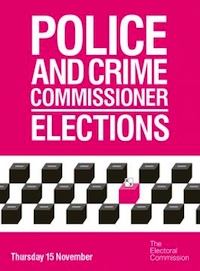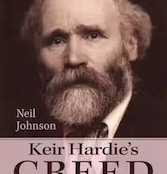Ahead of the Police & Crime Commissioner elections, a negligence verdict in Oregon has intensified pressure to keep the tainted contractor KBR out of UK policing. CLARE SAMBROOK reports.
Kellogg Brown & Root, the Texas-based military contractor that is pursuing UK police privatisation contracts despite its record of bribery, tax avoidance and fraud, has been ordered to pay $85 million to soldiers it exposed to carcinogenic chemicals in Iraq.
An Oregon jury found that KBR acted with “reckless and outrageous indifference” to the “health, safety, and welfare” of American soldiers stationed at a water treatment plant that KBR knew was highly contaminated with the Class 1 carcinogen, sodium dichromate.
 The verdict, announced on 2 November, increases pressure on UK police authorities to ban KBR, the ex-Halliburton company that helped to build Guantanamo, from bidding to run police services.
The verdict, announced on 2 November, increases pressure on UK police authorities to ban KBR, the ex-Halliburton company that helped to build Guantanamo, from bidding to run police services.
Citizens in the West Midlands have already campaigned hard for months to have KBR and other tainted contractors excluded from bidding to run the region’s police services.
In a letter-before-claim to the Police Authority in August, Birmingham-based Public Interest Lawyers (PIL), representing the campaign group West Midlands Against Policing for Profit, pointed out that that KBR “pleaded guilty before an American court to engaging in a scheme between 1994 and 2004 to bribe Nigerian officials with significant financial payments in order to secure business”.
The lawyers argued that procurement regulations therefore required West Midlands Police to exclude KBR, saying: “What appears to have happened here is that, in response to a ‘Pre-Qualification Questionnaire’, KBR indicated that it had not been found guilty of bribery offences and West Midlands Police has blindly accepted that.”
Public Interest Lawyers also raised concerns about rival bidders G4S and Serco, querying “the extent to which West Midlands Police has actively considered concerns that the companies have been involved in acts of grave misconduct”.
The Police Authority pressed ahead. Campaigners relentlessly challenged candidates in Police and Crime Commissioner elections, being held on Thursday (15 November), to call for the immediate ending of the privatisation process.
Among candidates who replied to OurKingdom’s inquiries on Monday, Bob Jones (Labour) says he would end the ‘BPP’ procurement process, and exclude from any future contracts bidders who have broken the law, Mike Rumble (Independent) opposes privatisation altogether and would introduce an ‘Ethical Contractors’ Policy’, and Cath Hannon (Independent) referred us to a 1100 word statement that defies summary.
Bribery, money-laundering, fraud
KBR, which split off from the Halliburton Group in 2007, has been repeatedly criticised in the United States for defrauding tax-payers and putting soldiers at risk.
In recent years numerous former KBR employees have been convicted on multiple counts of bribery, money-laundering and fraud.
Former KBR chief executive Albert ‘Jack’ Stanley was sentenced in February to two and a half years in jail for his part in bribing Nigerian government officials to get $6 billion worth of engineering and construction projects.
In 2010 Halliburton paid the Nigerian government a $35 million penalty in exchange for assurances that Nigeria would not pursue bribery charges and lawsuits against Halliburton, KBR and nine people including Dick Cheney, the former Halliburton chief executive and United States Vice President.
KBR was prominent among the war contractors investigated over the vanishing of $12 billion of taxpayers’ money that was supposed to be spent on rebuilding Iraq.
Stuart Bowen, the Special Inspector General for Iraqi Reconstruction, reported to Congress that just two audits in 2004 exposed KBR’s failure to account for $22.3 million worth of items.
The Congressional Committee on Oversight and Government, which pursues fraud and abuse, asked Halliburton in 2005 to explain ‘discrepancies’ between senior executives’ testimony to Congress and evidence that KBR billed US taxpayers more than $5.5 million for work that should have cost only $680,000. KBR’s Jeff Mazon was later convicted of fraud for his part in the scam.
In 2008, the Committee investigated KBR’s use of subsidiaries in the Cayman Islands to reduce its tax liabilities.
Some of the former KBR personnel convicted of bribery, money-laundering and fraud in relation to military contracts are listed here on the Special Inspector General for Iraqi Reconstruction site.
Meanwhile, in a parallel universe, the company continues to claim: “KBR’s core values drive everything we do.” Those values purportedly include “Uncompromising commitment to Quality, Health, Safety and Environment”, “Transparency, Accountability and Discipline in our business”, and, “Integrity in all we do”.
West Midlands Police Authority, which insists on referring to its privatisation process as “the BPP”, or “Business Partnering for Police”, denies that police privatisation is happening at all.
Chief Constable Chris Sims claims: “I want to make it clear this programme is not about privatising the police or outsourcing the service.” His bumbling attempt to support this assertion when called before the Home Affairs Select Committee in March also exposed an absence of any evidence that commercial police services might beat public provision on cost.
KBR’s senior executive for the UK is just as convincing. Andrew Pringle, a former British Army Major General who bears the title “President of KBR’s International Government, Defence and Support Services”, told the Financial Times in May that KBR had “no interest” in privatising the roles of frontline officers and wanted only to help the police “improve their efficiency”.
But a secret contract note exposed by the Guardian reveals that employees of tainted KBR, or shambolic G4S, or Serco, or some other for-profit outfit could soon be patrolling British streets, investigating crimes, detaining suspects, supporting prosecutions, investigating major incidents, managing high-risk individuals, managing intelligence and forensics, protecting vulnerable people, and supporting victims and witnesses.
—-
This article was first published on openDemocracy on 13 November 2012.
Clare Sambrook is co-editor of OurKingdom on the openDemocracy website. She is a novelist and journalist who won the 2010 Paul Foot Award and the Bevins Prize for Outstanding Investigative Reporting. She is co-founder of End Child Detention Now.


